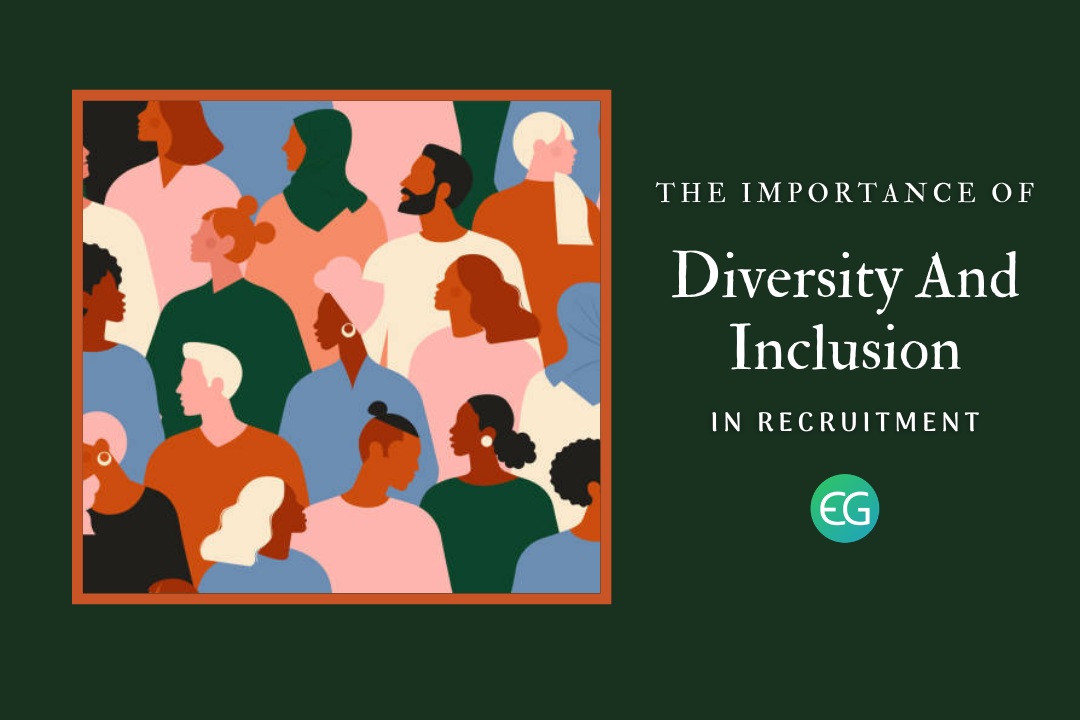
Employers are increasingly coming to recognise the strong business case for improving the level of diversity and inclusion within their workforce. By recruiting professionals from a range of backgrounds at all levels of seniority, businesses gain access to a wide variety of viewpoints and perspectives. Companies with staff from a broad range of backgrounds have been found to outperform firms with a less diverse workforce. By attracting and retaining a diverse range of staff, businesses can identify opportunities and explore new solutions. Developing, implementing and promoting a diversity strategy is the challenge employers now face. Securing the most talented professionals will require employers to take on a new, innovative approach to access more diverse talent pools.
73% of employers believe diversity is important to encourage creative and innovative thinking within the company.
Businesses that work to actively ensure they are appealing to a broad range of candidates will mark themselves as an employer with an inclusive approach to recruitment. However, less than half of businesses (43%) have a strategy in place to ensure their brand appeals to candidates from a diverse range of backgrounds.
What Is a Diversity Recruiting Strategy?
The definition of diversity hiring tells us that, “Diversity hiring is the hiring which is based on merit with special attention given to ensuring that the procedures are free from biases related to a candidate’s age, race, gender, religion, sexual orientation, and other personal characteristics that are unrelated to their job performance.”
A diversity recruiting strategy defines all the goals, accountabilities, action items, and success measures that are undertaken for attracting, engaging, assessing, and recruiting diverse talent to drive business success. It’s often a part of a bigger diversity and inclusion strategy, developed to make sure a workforce reflects a company’s customer base and therefore the communities where it operates, and to maximize the advantages which will come from a various range of backgrounds, experiences, and perspectives.
Like any business, diversity recruiting strategies are also constantly changing and evolving, as leading-edge companies draw a connection between workforce diversity and job satisfaction, culture, community impact, innovation, and business results.
Diversity recruiting is the practice of hiring candidates employing a process that’s free from biases for or against a person or group of candidates. it’s still merit-based recruitment and still aims to seek out the simplest possible candidate, but it’s structured to offer all applicants, no matter background, a civil right.
Diversity can fall under two categories: inherent diversity, like demographic factors, or acquired diversity, which are developed or earned over time. consider inherent diversity as being tied to race, gender, age, and the other characteristic that’s natural to who someone is as an individual. Acquired diversity refers to things like education, experience, values, skills, and knowledge, which are more fluid and may develop and evolve over time.
What is Inclusive Recruitment?
Inclusive recruitment is the process of connecting with, interviewing, and hiring a diverse set of individuals through understanding and valuing different backgrounds and opinions. Inclusive recruiting should be intersectional and consider more than just gender or race.
An inclusive recruiting environment considers how different experiences, opinions, and values can work together to achieve a common goal. By creating a diverse workforce, your teams are pushed to think outside their comfort zone and challenge new thoughts or ideas.
Now that we have an understanding of the meaning of diversity and inclusion in recruitment let us understand how diversity and inclusion can help your organization.
Reduced Employee Turnover
Workplace diversity is useful for employee retention.
Companies with various workforce are generally more inclusive of various individual characteristics and perspectives.
Diversity and inclusion within the workplace cause all employees to feel accepted and valued. When employees feel accepted and valued, they’re also happier in their workplace and stay longer with a corporation. As a result, companies with greater diversity within the workplace have lower turnover rates.
Higher Innovation And Creativity
Diversity within the workplace results in a better innovation rate.
According to research, inclusive companies are 1.7 times more likely to be innovation leaders in their market.
In a workplace that is diverse, employees are exposed to multiple perspectives and worldviews. When these various perspectives combine, they often close in novel ways, opening doors to innovation.
Different Perspectives
Diversity in the workplace ensures a variety of different perspectives.
Since diversity in the workplace means that employees will have different characteristics and backgrounds, they are also more likely to have a variety of different skills and experiences.
Consequently, employees in a company with higher workplace diversity will have access to a variety of different perspectives, which is highly beneficial when it comes to planning and executing a business strategy.
Better Company Reputation
Workplace diversity boosts the company’s reputation and brand.
Companies that are dedicated to putting together and promoting diversity within the workplace are seen nearly as good, more human, and socially responsible organisations.
Workplace diversity is something that also makes your company look more intriguing. Finally, if you present a variety of workforce, you’ll make it easier for several different people to relate to your company and your brand, opening doors to new markets, customers, and business partners.
